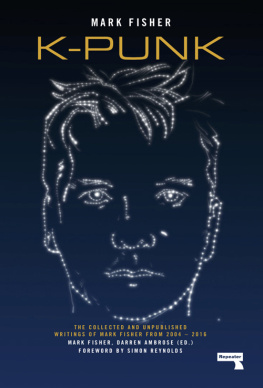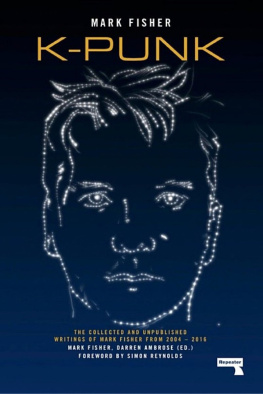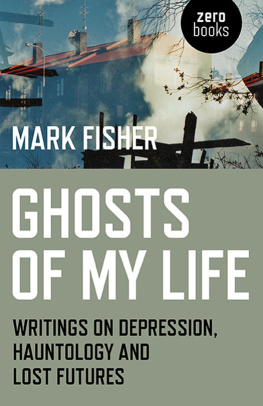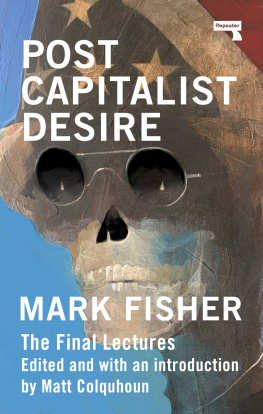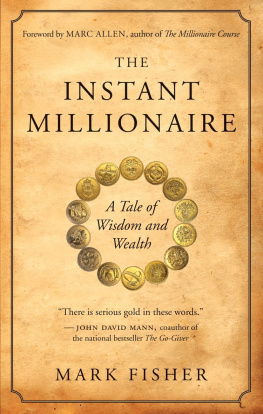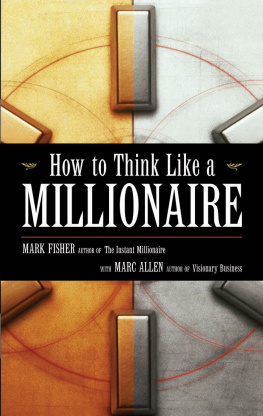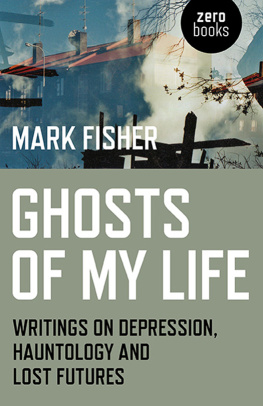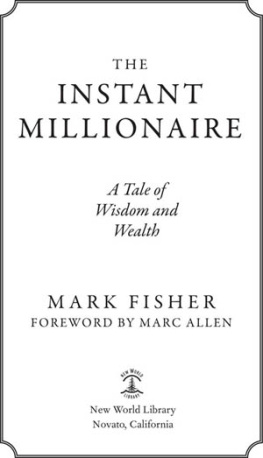Mark Fisher - K-Punk: The Collected Writings of Mark Fisher
Here you can read online Mark Fisher - K-Punk: The Collected Writings of Mark Fisher full text of the book (entire story) in english for free. Download pdf and epub, get meaning, cover and reviews about this ebook. year: 2018, publisher: Repeater, genre: Religion. Description of the work, (preface) as well as reviews are available. Best literature library LitArk.com created for fans of good reading and offers a wide selection of genres:
Romance novel
Science fiction
Adventure
Detective
Science
History
Home and family
Prose
Art
Politics
Computer
Non-fiction
Religion
Business
Children
Humor
Choose a favorite category and find really read worthwhile books. Enjoy immersion in the world of imagination, feel the emotions of the characters or learn something new for yourself, make an fascinating discovery.
- Book:K-Punk: The Collected Writings of Mark Fisher
- Author:
- Publisher:Repeater
- Genre:
- Year:2018
- Rating:5 / 5
- Favourites:Add to favourites
- Your mark:
- 100
- 1
- 2
- 3
- 4
- 5
K-Punk: The Collected Writings of Mark Fisher: summary, description and annotation
We offer to read an annotation, description, summary or preface (depends on what the author of the book "K-Punk: The Collected Writings of Mark Fisher" wrote himself). If you haven't found the necessary information about the book — write in the comments, we will try to find it.
K-Punk: The Collected Writings of Mark Fisher — read online for free the complete book (whole text) full work
Below is the text of the book, divided by pages. System saving the place of the last page read, allows you to conveniently read the book "K-Punk: The Collected Writings of Mark Fisher" online for free, without having to search again every time where you left off. Put a bookmark, and you can go to the page where you finished reading at any time.
Font size:
Interval:
Bookmark:
k-punk

Mark Fisher (1968 2017) was a co-founder of Zer0 Books and, later, Repeater Books. His blog, k-punk, defined critical writing for a generation. He wrote three books, Capitalist Realism, Ghosts of My Life and The Weird and the Eerie, and was a Visiting Fellow in the Visual Cultures department at Goldsmiths, University of London.
Darren Ambrose is a freelance writer and editor from the North-East of England.
Simon Reynolds is the author of Retromania and Rip It Up and Start Again.
k-punk
The Collected and Unpublished Writings of Mark Fisher (2004-2016)
Edited by Darren Ambrose
Foreword by Simon Reynolds

Published by Repeater Books
An imprint of Watkins Media Ltd
19-21 Cecil Court
London
WC2N 4EZ
UK
www.repeaterbooks.com
A Repeater Books paperback original 2018
Text copyright Mark Fisher 2018
Foreword copyright Simon Reynolds 2018
Introduction copyright Darren Ambrose 2018
Mark Fisher asserts the moral right to be identified as the author of this work.
Cover design: Johnny Bull
Typography and typesetting: Frederik Jehle
Typefaces: Meridien LT Std, Aleo
ISBN: 9781912248285
Ebook ISBN: 9781912248292
All rights reserved. No part of this publication may be reproduced, stored in a retrieval system, or transmitted, in any form or by any means, electronic, mechanical, photocopying, recording or otherwise, without the prior permission of the publishers.
This book is sold subject to the condition that it shall not, by way of trade or otherwise, be lent, re-sold, hired out or otherwise circulated without the publishers prior consent in any form of binding or cover other than that in which it is published and without a similar condition including this condition being imposed on the subsequent purchaser.
foreword
The strange thing is that I encountered Marks mind long before I actually met him. In a way, I knew him before I even knew of him.
Let me explain. In 1994, I wrote a piece for Melody Maker about D-Generation, a concept-laden outfit from Manchester whose line-up included Mark. But I only ever spoke on the phone with another member, Simon Biddell. Because I was so interested in D-Generations ideas, it never even occurred to me to do the basic journalistic procedure of asking who else was in the group. So it was a full decade later that I learned Id effectively written about Mark, when he shyly revealed this fact in an email to me. And sure enough, digging out the yellowing clip D-Generation as Pick of the Week in the Advance section of Melody Maker there was Mark right in the centre of the photo: his hair in a vaguely Madchester-style bob, his eyes staring out at the reader with a searching, baleful intensity.
D-Generation were one of those groups that are grist for the mill of the music press, catnip to a certain kind of critic: the conceptual framing was piquant and provocative, the sound itself lagged slightly behind the spiel. Rereading the piece and listening for the first time in many years to D-Generations EP Entropy in the UK, its fascinating just how many of Marks signature fixations were already in evidence. Theres the centrality of punk in his worldview: D-Generation described their music as techno haunted by the ghost of the punk (literally, in The Condition of Muzak, which sampled Johnny Rottens Winterland 1978 kiss-off ever get the feeling youve been cheated? and turned his bitter jeering laugh into a riff). Theres the love-hate for Englishness: hating the hale n hearty, artless and anti-intellectual side of the national character (Rotting Hill sampled Merrie England? England was never merry! from the film version of Lucky Jim), loving a darkly arty deviant tradition that included the Fall, Wyndham Lewis, and Michael Moorcock (all referenced in D-Generations press release). Theres also early evidence of Marks virulent contempt for retro: 73/93 targeted what D-Generation dubbed the Nostalgia Conspiracy. And theres even flickering ectoplasmic portents of hauntology, that twenty-first century current of music and thought and sensibility that Mark championed so compellingly.
Beyond those specifics, though, its the structure of the encounter itself that is revealing and prefiguring. Heres a music journalist (in this case, me) hungrily on the look-out for a group with ideas, and, having found one (in this case, D-Generation), forming a symbiotic alliance with musicians who themselves think like critics. Thats how Mark would operate when he got to the other side of divide. In his fruitful relationships with Burial, the Caretaker, Junior Boys, and other artists, a mutually intensifying feedback loop between the music-theorist and the music-practitioner was set in motion. The borderline between the two fronts of activity dissolved. Both critic and artist contributed equally to the scene, pushing it ever forward in a dialectic of advance, counter-reaction, swerve, clash.
Raised on the British music press of the Eighties (primarily NME) and fuelled further by what survived of its approach and spirit into the Nineties (primarily Melody Maker and the Wire), Mark Fisher was possibly the last of a disappearing breed: the music critic as prophet. The primary mission was identifying the leading edge and proselytising on its behalf, while simultaneously directing laser beams of negativity to discredit the wrong paths being taken and to clear space for the true music of our time. But alongside weaponised praise in support of the new and radical, the messianic critic also set challenges for music and for listeners and readers too.
Mark Fisher became the best music writer of his generation. But that is just one of his areas of achievement. Mark wrote brilliantly about the arts adjacent to popular music: television, science fiction, mainstream movies (particularly the pulp end of the spectrum it always amazed me that he would routinely check out things like the CGI-bloated 2005 remake of King Kong, just on the off chance there was something salvageable there, something he could recruit to his pulp modernism concept). Mark wrote rivetingly about high culture too visual arts, photography, literature, highbrow cinema. And he wrote penetratingly about politics, philosophy, mental health, the Internet and social media (the phenomenology of digital life its peculiar affects of connected loneliness and distracted boredom). Often, and most crucially, Mark wrote about many sometimes all of these things at the same time. Making connections across far-flung fields, zooming in for vivid attention to aesthetic particulars and zooming out again to the widest possible scope, Mark would locate the metaphysics in a TV show like Sapphire and Steel, the psychoanalytic truths lurking in a Joy Division song, the political resonances stitched into the fabric of a Burial album or Kubrick movie. His subject was all of human life (even though he would characterise himself as neither a humanist nor a vitalist). The ambition was vast; the vision was total.
The exciting thing about Marks writing in his blog k-punk, in magazines like the Wire, FACT, Frieze, and New Humanist, and in his books for Zer0 and Repeater was the feeling that he was on a journey: the ideas were going somewhere, a gigantic edifice of thought was in the process of construction. You sensed, with mounting awe, that Mark was building a system. There was a feeling too that while the work was rigorous and deeply informed, it was not academic, either in terms of its intended audience or as an exercise done purely for its own sake. The urgency in Marks prose came from his faith that words really could change things. His writing made everything feel more meaningful, supercharged with significance. Reading Mark was a rush. An addiction.
Next pageFont size:
Interval:
Bookmark:
Similar books «K-Punk: The Collected Writings of Mark Fisher»
Look at similar books to K-Punk: The Collected Writings of Mark Fisher. We have selected literature similar in name and meaning in the hope of providing readers with more options to find new, interesting, not yet read works.
Discussion, reviews of the book K-Punk: The Collected Writings of Mark Fisher and just readers' own opinions. Leave your comments, write what you think about the work, its meaning or the main characters. Specify what exactly you liked and what you didn't like, and why you think so.

